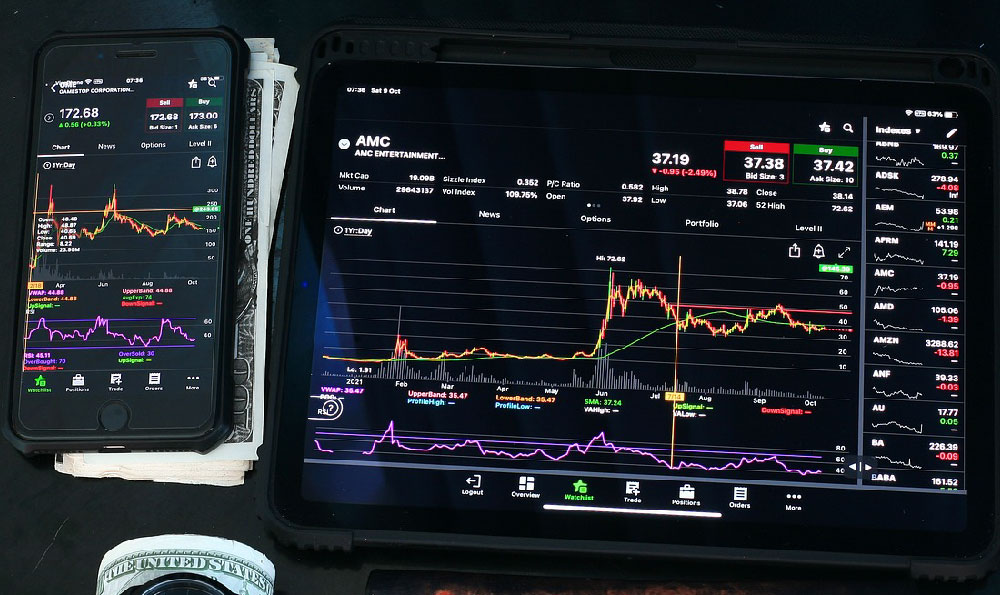Let's explore the landscape of earning money from home, specifically focusing on the alluring, yet complex, world of cryptocurrency investment. It's crucial to approach this topic with the understanding that it's not a get-rich-quick scheme, but rather a potentially lucrative, yet inherently risky, investment avenue. Success hinges on knowledge, discipline, and a long-term perspective.
One must acknowledge that countless options exist, ranging from simple savings accounts to complex derivatives. However, within the context of cryptocurrency, several prominent pathways emerge: active trading, passive income generation through staking and lending, and more recently, participation in Decentralized Finance (DeFi) protocols. Each presents unique opportunities and demands distinct skillsets.
Active trading, often portrayed as the glamorous face of crypto investment, involves the frequent buying and selling of cryptocurrencies to profit from short-term price fluctuations. This requires a deep understanding of technical analysis, market sentiment, and risk management. You'll need to learn to interpret candlestick charts, identify key support and resistance levels, understand technical indicators like moving averages and RSI (Relative Strength Index), and keep abreast of news and events that could impact the market. Furthermore, disciplined risk management is paramount. Setting stop-loss orders to limit potential losses, diversifying your portfolio across different cryptocurrencies, and only investing what you can afford to lose are crucial safeguards. The allure of quick profits is tempting, but without proper education and risk mitigation strategies, active trading can quickly lead to significant losses.

Passive income generation presents a more hands-off approach. Staking involves holding certain cryptocurrencies in a designated wallet or on an exchange to support the network's operations and earn rewards in return. Lending involves lending out your cryptocurrency holdings to borrowers through platforms or DeFi protocols, earning interest on your loan. These options typically offer lower returns than active trading, but they also carry significantly lower risk. The primary risk associated with staking and lending lies in the security of the platform or protocol you're using. Ensuring the platform has a strong track record, employs robust security measures, and undergoes regular audits is crucial. "Not your keys, not your coins" is a fundamental principle in crypto, highlighting the importance of self-custody where possible, though it demands a greater understanding of wallet management and security best practices.
Decentralized Finance (DeFi) represents a rapidly evolving sector within the cryptocurrency ecosystem. DeFi protocols offer a range of financial services, such as lending, borrowing, and trading, without the need for traditional intermediaries. Participation in DeFi can offer attractive yields, but it also carries significant risks, including smart contract vulnerabilities, impermanent loss (particularly when providing liquidity to decentralized exchanges), and regulatory uncertainty. Engaging in DeFi requires a deep understanding of the underlying technology and the specific protocols you're interacting with. Thoroughly researching the smart contracts, understanding the risks involved, and starting with small amounts are essential precautions.
So, which option is right for you? The answer depends entirely on your individual circumstances, risk tolerance, and time commitment. Before diving into any specific investment strategy, it's vital to conduct thorough research and self-assessment. Ask yourself: What is my risk tolerance? How much time am I willing to dedicate to managing my investments? What are my financial goals?
If you're risk-averse and have limited time, staking or lending may be a suitable option. If you're willing to dedicate significant time to learning and managing your investments, active trading or DeFi participation might be more appealing, though it is strongly advised to start with a demo account or paper trading to hone your skills and test your strategies before risking real capital.
It is also crucial to be wary of scams and fraudulent schemes, which are unfortunately prevalent in the cryptocurrency space. Promises of guaranteed high returns are almost always a red flag. Do your own research, verify the legitimacy of any platform or project before investing, and never invest more than you can afford to lose. Exercise skepticism and prioritize security above all else.
Furthermore, remember that the cryptocurrency market is highly volatile. Prices can fluctuate dramatically in short periods, and there is always the risk of losing your investment. A balanced approach that combines cryptocurrency investments with more traditional assets can help mitigate risk. Seek professional financial advice if needed. Understanding taxation laws related to cryptocurrency gains in your jurisdiction is also essential.
In conclusion, earning money from home through cryptocurrency investment is a possibility, but it requires careful planning, diligent research, and a disciplined approach. There's no substitute for knowledge and a healthy dose of skepticism. By understanding the different options available, assessing your own risk tolerance, and taking appropriate precautions, you can increase your chances of success while protecting your assets. Remember, the journey is a marathon, not a sprint, and continuous learning is key to navigating the ever-evolving landscape of cryptocurrency.











